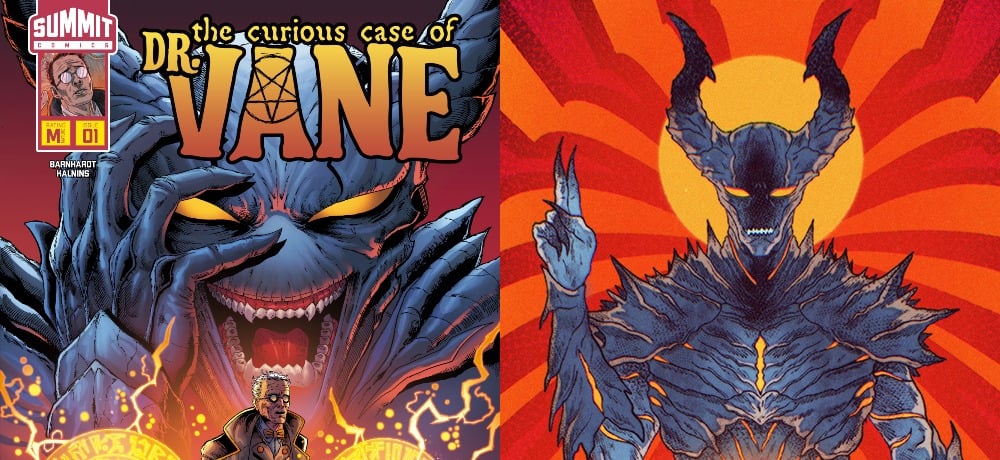





“’Tis the night, the night of the grave’s delight.” So begins Nicholas Verso’s latest feature film, a phantasmal, surreal poem set during one youth’s Halloween night. Viewers who recall his remarkable short film The Last Time I Saw Richard will anticipate the dreamlike atmosphere and dark fantasy at play here, but this story goes beyond fable. Verso evokes an immersive spirit realm through which emerges a tale of lost youth, lost hope, and a boy seeking to reclaim his soul.
The film begins with Corey celebrating a final Halloween with his reckless high school companions. When their crude antics become too much for him, he wanders the night alone, eventually running into Jonah, his long-lost childhood friend. Jonah convinces him to enter the imaginary world that they created in their youth, and leads him on a journey through their old haunts—a creepy mansion, night-shrouded school halls—but the farther they go, the closer Corey comes to encountering demons from his past.
By setting his film on October 31st, 1997, Verso gives himself the perfect excuse to create a wildly stylized world. The Y2K wardrobe and hard-edged soundtrack give the landscape realism, but liminality touches the urban environments, turning them into something unknown. The autumnal atmosphere is thick, with the camera moving confidently through dangling paper ghosts, empty graveyards, dark corridors, all bathed in blue moonlight. Verso’s dialogue balances the two worlds well—clever and sharp, at turns poetic and eerie. The unusual beauty of Toby Wallace, a Verso regular, brings us through both moods with a consistently vulnerable performance.
The vivid Halloween world tints even natural interactions with magic, allowing Verso to explore supernatural concepts without actually evoking spirits. Jonah tells Corey an array of ghost stories about children lost in their own delusions, or adults who let their dreams decay into nightmares. The monsters all stand for something real, with ghosts standing for dead lives and werewolves representing boys overtaken by masculinity—perhaps the metaphors are too obvious, but they’re also truthful. It’s a literary film at heart, and its depths are clearer for it. The dreaminess of these tales masks a fiery angst that threatens to scream into being, generating an emotional tension that gives substance beyond aesthetic.
The metaphors burden the story at times, however, and the balance does tip frustratingly into simple reality near the midway point. Some of Jonah’s stops on his journey call attention to their cinematic influences too clearly. But Verso’s vision remains his own, and he brings his world back to its core for a tragic finale that calls into question the nature of his fantasy. The suppressed rage, the violent sadness of the revelation expresses a queer subtext that shows how many people don’t survive their personal Bildungsroman.
Verso’s fable witnesses a boy reconciling his decaying innocence, his loneliness, his otherness; it’s a melancholic coming-of-age drama in the intricate costume of horror fantasy. There are no real villains, no monsters, just dark revelations that the characters must face before they can grow up. Its emotional arc moves through a wide breadth of stages—dread, excitement, fear, utter tragedy—but leaves the viewer with some form of hope, even if it’s tinged by sadness. The spell may not capture everyone, though viewers who understand how it feels to lose oneself may find kinship here, and catharsis. For, like the best fables, it leaves us with a bittersweet understanding of our own lives.
Boys in the Trees is now available to stream on Netflix.
Movie Score: 3.5/5
---------
In case you missed it, check here to read more of our coverage of the 2017 Sitges Film Festival!